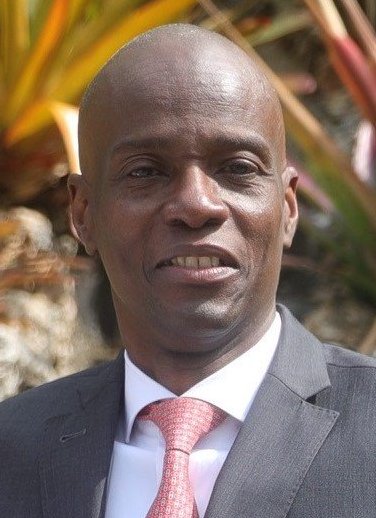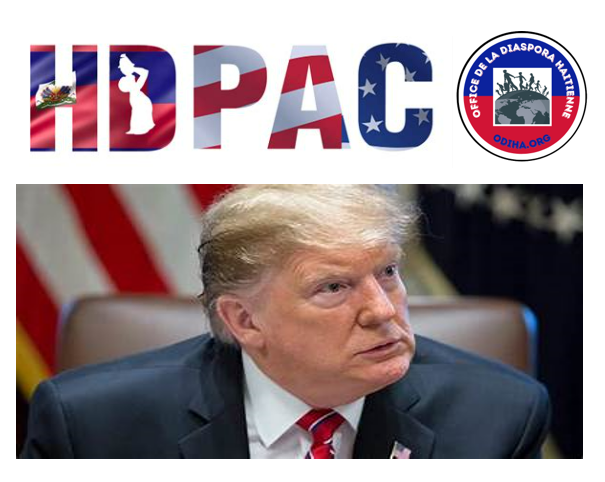|
Getting your Trinity Audio player ready...
|
July 13, 2021
TrueNewsReport
By: Maitre Roy
TrueNewsBlog – Jovenel Moise selectively went after the oligarchs n Haiti who control the economy. He removed lucrative contracts from Dimitri Vorbes and investigated Reginald Boulos for corruption.
He is believed to have stabbed his benefactor former Haitian President Michel Martelly in the back by aligning himself with another corrupt politician – Laurent Salvador Lamothe, for these political sins, he was assassinated.
Who was JOVENEL MOÏSE and why did he govern the way he did?
Jovenel Moïse clung to power in a protracted political battle that earned him many enemies. But hai greatest mistake was to hire Laurent Lamothe as his special advisor.
It was a battle from the start for Haiti’s president, Jovenel Moïse.
Even before he took office, Mr. Moïse had to fight off accusations that, as a virtually unknown banana exporter, he was nothing but a handpicked puppet of the previous president, Michel J. Martelly.
“Jovenel is his own man,” Mr. Moïse told The New York Times in 2016, shortly after having won the election, trying to rebut the accusations. He promised to show results within six months in office.
After more than four years in office, he was killed in his home early Wednesday at the age of 53. He left a wife and three children. In his last year in office, as protests against him grew and he declined to step down, he had to defend himself in other ways: “I am not a dictator,” he told The Times earlier this year.
Mr. Moïse was the former president of the chamber of commerce in Port-de-Paix, the country’s northwest region, when he ran for president. When he emerged as a leading candidate in 2015, few people had ever heard of him. They called him “the Banana Man.”
He won a majority of votes in a crowded field where few people had bothered to cast ballots. In interviews, Mr. Moïse often recounted how he had grown up on a large sugar plantation in a rural area of the country, and could relate to the vast majority of Haitians who live off the land. He attended school in the capital, Port-au-Prince. He said he learned how to succeed by watching his father’s profitable farming business.
But his time on that plantation made him think. “Since I was a child, I was always wondering why people were living in such conditions while enormous lands were empty,” he said. “I believe agriculture is the key to change for this country.”
He ran a large produce cooperative that employed 3,000 farmers.
But during his time in office, Mr. Moïse was widely accused of behaving like a strongman who tried to consolidate power.
In 2019, an inspector general’s report examining PetroCaribe funds generated from Venezuela’s oil donations accused him of embezzlement. Two of Mr. Moïse’s companies had billed to build the same road, the report said, which critics believed was a scheme to generate money to pay for his campaign. People wondered: What was a banana company doing building roads?
He was also accused of having used powerful violent gangs to suppress political opposition.
“The involvement of various Moïse administration officials and police officers in planning and executing attacks point to a state policy to attack civilians,” a study this year by the International Human Rights Clinic at Harvard Law School said.
In a dispute over when his term should end, he declined to step down and ruled by decree as the terms of nearly every elected official in the country expired and no elections were held.
He tried to push through a new constitution that would have given his office more power and the ability to secure more terms in office. Those plans were derailed by the pandemic and rising insecurity in the country.
History will remember Mr. Moïse as a stubborn and brave person who knew what he wanted, and was willing to fight for it, said Pierre Reginald Boulos, an opposition figure and wealthy business leader who helped Mr. Moïse get elected, but ultimately broke with him and became his nemesis. Mr. Boulos wound up under investigation by the government’s anti-corruption unit, which many saw as politically motivated.
“When he has something in his mind, he becomes blind about it,” Mr. Boulos said. “From what I knew of him before we broke up, this was a guy who really wanted to see change in Haiti. I think his desire to see a new Haiti was real. And he had energy like nobody else. This was a president who worked 14, 16, 18, 20 hours a day.”
It was normal for Mr. Moïse to hit the road before dawn for a seven-hour drive to the capital, attend a two-hour meeting and turn back the same day, Mr. Boulos said.
As for who may have killed him, “Everybody’s name has been floated,” Mr. Boulos said, “including my own.”
James Morrell, director of the Haiti Democracy Project, a group formed by former U.S. ambassadors that monitors elections in Haiti, disagreed with those who believed Mr. Moïse had illegally stayed in power. He accused the United States and the international community of “pulling the rug out” from under him by withdrawing United Nations troops that had offered protection.
“The opposition was gunning for him almost from the start,” Mr. Morrell said. “I think that he was fairly ineffective,” he added. “He became more and more abusive.”
Even his critics agree that Mr. Moïse used his power in office to try to end monopolies that offered lucrative contracts to the powerful elite. And that made him enemies. But others saw his crusade as hypocritical, because as he fought the oligarchs, he became one himself.
“To some he was a corrupt leader, but to others he was a reformer,” said Leonie Hermantin, a Haitian community activist in Miami. “He was a man who was trying to change the power dynamics, particularly when it came to money and who had control over electricity contracts. The oligarchy was paid billions of dollars to provide electricity to a country that was still in the dark.”
Simon Desras, a former opposition senator in Haiti, said Mr. Moïse seemed to know that his battle against the wealthy and powerful interests in the country would get him killed.
“I remember in his speech, he said he just targeted the rich people by putting an end to their contracts,” Mr. Desras said in a telephone interview, as he drove through Haiti’s deserted streets. “He said that could be the reason for his death, because they are used to assassinating people and pushing people into exile.” —






